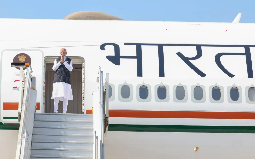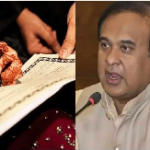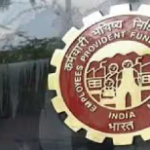Can India play an important role in cajoling its old-time friend Russia to agree for a ceasefire with Ukraine? Is Narendra Modi capable of using the status India enjoys in convincing the warring sides to reach to an agreement that both countries desperately want to. These questions are being asked at a time when Modi is scheduled to hold a meeting with Ukrainian President Volodymyr Zelensky.
Ukrainian President Slams Narendra Modi
Ukrainian President was quick to hit back at India when Narendra Modi hugged Russian President Vladimir Putin in Moscow on his state visit on the day when 37 people, including three children, were killed and 170 were injured in a Russian missile attack on a hospital.
Though Moscow flatly denied attacking the hospital and claimed the damage was caused when a fragment of a Ukrainian air defence missile fell on it, the image of India got a severe beating.
‘Uncle Sam’ Expresses Displeasure
The US State Department officials openly expressed unhappiness over the incident. State Department Spokesman Matthew Miller said, “We have made quite clear directly with India our concerns about their relationship with Russia.”
Is India Sending Strong Signals To US
It was interpreted in the international community that India wanted to send a strong signal to the US and its allies that it would keep its independent position intact and would not succumb to Washington’s pressure tactics. Earlier, PM Modi told Vladimir Putin in the most unambiguous terms, “It is not a time of wars”. PM Modi’s Moscow visit and the way he met the Russian President was another signal of India’s neutral stand.
India Reaches Out To NATO, US, EU
After what Zelensky and the US said about PM Modi’s visit to Moscow, New Delhi announced that the Prime Minister would visit Ukraine. With this, India made it clear that it is not against Ukraine despite being a time-tested friend of Russia. It was also a damage-control exercise and an attempt to soothe the frayed feelings of the US, European Union and North Atlantic Treaty Organisation.
It may be noted that India is in the final phase of talks with the UK for a Free Trade Agreement and trying to improve business relations with the US. New Delhi does not want to have bad relations with the trans-Atlantic organisation as it wants to shift its defence needs and may require weapons and other hardware, that may be under the dual control of the US and NATO.
India Sends Signals To Russia
With PM Modi’s Ukraine visit, India also wants to send a clear signal to Moscow that the bilateral ties should not be taken for granted. India is also peeved at Moscow’s recent overtures to its adversary Pakistan and the way it has offered to sell military hardware to Islamabad. It may look ironic that India is using Ukraine to send strong signals to its old-time friend, but it is necessary to have genuine strategic autonomy in its foreign policy.
Changing War Dynamics After Kursk Incursion
The war dynamics have changed after the Ukrainian Army made a small, but significant incursion into the Russian territory of Kursk. With this, Moscow has come under pressure, and if it fails to get the area back quickly, Putin may face rebellion. If the Russia-Ukraine War goes on for a long time and Moscow comes under further pressure of losing one more area, the onus of a ceasefire will shift to it.
On the other hand, NATO may not want to waste its resources on a war that goes on for a long time, the EU has its problems to address, and the new US President may not want to keep spending money on the war for a long time. So, it seems that the ceasefire can not be avoided for a long time. Can India influence the ceasefire process and ask the warring nations to come to the negotiation table soon?
What Are The Options Before India?
India can have its role in convincing Moscow and it can also cajole Ukraine to reach a respectable and amicable settlement. But that time has not come yet and right now New Delhi has no visible role in the war. The Indian Prime Minister can announce a slew of humanitarian aides like civil supplies including medicine and medical equipment. No one should expect dramatic results and gains from PM Narendra Modi’s Ukraine visit. Of course, India can manoeuvre and adjust its foreign policy in the changing world scenario. It needs a course correction and Kiev has offered an opportunity. It’s up to India how it uses it.



